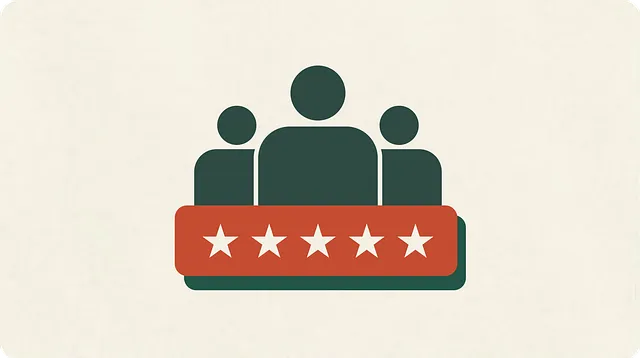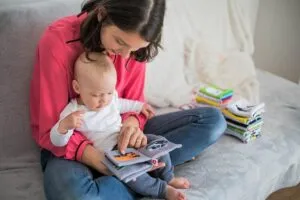Child custody mediation offers a structured, safe space for co-parents to navigate complex negotiations. Trained mediators encourage open dialogue, mutually agreeable solutions, and collaborative problem-solving, prioritizing the child's best interests. This process empowers parents with skills for effective communication, shared parenting plans, and emotional stability during separation or divorce, ultimately fostering healthy co-parenting relationships and children's well-being. Key services include mediation preparation coaching, custody agreement drafting, and custody negotiation support to ensure fair, structured outcomes tailored to unique family circumstances.
Child custody mediation services offer a constructive path for parents navigating complex co-parenting arrangements. In a safe and neutral environment, trained mediators guide conversations, facilitating agreement on critical issues like parenting schedules and legal custody terms. This article explores the multifaceted role of mediators in fostering open communication, understanding, and tailored solutions, ultimately empowering families with effective custody negotiation support. From flexible scheduling to long-term co-parenting strategies, discover how mediation can lead to lasting positive outcomes for all involved.
- Understanding Child Custody Mediation: A Safe Space for Parents
- The Role of Mediators in Facilitating Communication and Agreement
- Creating Fair and Flexible Parenting Schedules
- Legal Aspects: Drafting Customized Custody Agreements
- Building a Strong Foundation for Co-Parenting Success
- Long-Term Benefits: Empowering Families Through Mediation
Understanding Child Custody Mediation: A Safe Space for Parents

Child custody mediation offers a safe, structured environment for parents to navigate their complex co-parenting journey. It’s more than just a meeting; it’s a supportive space where highly trained mediators guide parents through difficult conversations, helping them find common ground and reach mutually agreeable solutions.
Through active listening and collaborative problem-solving techniques, mediation prepares parents for custody negotiations, fostering a sense of control and confidence. This process allows individuals to express their needs and concerns openly while exploring creative options for shared parenting plans post-divorce or separation, ensuring the best interests of the child are at the heart of every decision.
The Role of Mediators in Facilitating Communication and Agreement

In the delicate matter of child custody negotiations, mediators play a pivotal role in guiding parents toward mutually agreeable solutions. They serve as impartial facilitators, fostering open and honest communication between parties who may be emotionally charged. Through structured meetings and strategic techniques, mediators help parents navigate complex issues, ensuring both their voices are heard. This process is crucial for creating an environmentally safe separation, where the well-being of the child remains at the forefront.
By employing specialized custody negotiation support, including divorce confidence coaching and comprehensive separation support services, mediators enable parents to focus on what’s best for their children. They assist in crafting parenting schedules that are reasonable and in line with each parent’s responsibilities, fostering a cooperative rather than confrontational atmosphere. This collaborative approach not only streamlines legal agreements but also paves the way for long-term co-parenting success.
Creating Fair and Flexible Parenting Schedules

Creating fair and flexible parenting schedules is a crucial aspect of effective child custody mediation services. These schedules ensure that both parents have meaningful time with their children, promoting stability and minimizing disruption in the kids’ lives. A skilled mediation preparation coach can guide parents through this process, helping them navigate complex emotional situations and reach agreements that work for everyone involved.
Mediation offers a collaborative approach to custody negotiation support, where parents actively participate in designing solutions tailored to their unique circumstances. This involves considering factors like each parent’s work schedule, commuting distances, and the children’s needs and preferences. By fostering open communication and mutual understanding, mediation prepares couples for successful breakup coaching and divorce confidence coaching, ensuring they can maintain a healthy co-parenting relationship even after their separation.
Legal Aspects: Drafting Customized Custody Agreements

When navigating the legal aspects of child custody, drafting a customized custody agreement is a crucial step in ensuring a fair and structured arrangement for both parents and their children. This process involves careful consideration of various factors, including the best interests of the child, parental capabilities, and future co-parenting dynamics. With the help of professional custody negotiation support, parents can create agreements that cater to their unique situations.
Customized custody agreements provide a framework for visitation rights, parenting schedules, and decision-making processes. By involving experienced mediators, parents gain valuable custody negotiation support, enabling them to focus on building emotionally safe separation plans and fostering healthy co-parenting relationships. This approach ensures that the agreement reflects the practicalities of their lives while promoting stability and well-being for the children involved, even after a breakup or divorce.
Building a Strong Foundation for Co-Parenting Success

Building a Strong Foundation for Co-Parenting Success begins with effective custody negotiation support. When parents seek professional assistance through mediation, they gain a structured environment to communicate and collaborate, fostering an atmosphere conducive to amicable agreements. This initial phase is crucial, as it lays the groundwork for future co-parenting dynamics by establishing open lines of communication and promoting understanding of each other’s needs and perspectives.
Separation support services play a pivotal role in this process, offering tools and strategies tailored to navigate the complexities of divorce with confidence. A mediation preparation coach can guide parents through the intricacies of legal custody agreements, helping them make informed decisions that prioritize their children’s well-being. Ultimately, these services empower parents to create a harmonious environment, ensuring their ability to maintain a strong, cooperative relationship as co-parents.
Long-Term Benefits: Empowering Families Through Mediation

Long-term benefits of mediation go beyond immediate resolution. By guiding parents through custody negotiations, these services empower families to create sustainable co-parenting plans. This fosters a cooperative environment, ensuring children maintain stability and continuity in their lives post-separation or divorce.
Effective mediation prepares parents for ongoing communication, conflict resolution, and shared decision-making—essential skills for navigating the complexities of co-parenting. The support offered during this process builds divorce confidence and strengthens families’ ability to provide a loving and nurturing home environment for their children, fostering their well-being and resilience.
